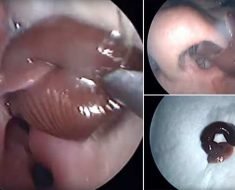UVA Health researchers have discovered a molecule in the brain responsible for orchestrating the immune system’s responses to Alzheimer’s disease and multiple sclerosis (MS), potentially allowing doctors to supercharge the body’s ability to fight those and other devastating neurological diseases.
The molecule the researchers identified, called a kinase, is crucial to both removing plaque buildup associated with Alzheimer’s and preventing the debris buildup that causes MS, the researchers found. It does this, the researchers showed, by directing the activity of brain cleaners called microglia. These immune cells were once largely ignored by scientists but have, in recent years, proved vital players in brain health.
UVA’s important new findings could one day let doctors augment the activity of microglia to treat or protect patients from Alzheimer’s, MS and other neurodegenerative diseases, the researchers report.
“Unfortunately, medical doctors do not currently possess effective treatments to target the root causes of most neurodegenerative diseases, such as Alzheimer’s, Parkinson’s or ALS [amyotrophic lateral sclerosis, commonly called Lou Gehrig’s disease]. In our studies, we have discovered a master controller of the cell type and processes that are required to protect the brain from these disorders,” said senior researcher John Lukens, PhD, of the University of Virginia School of Medicine and its Center for Brain Immunology and Glia (BIG), as well as the Carter Immunology Center and the UVA Brain Institute. “Our work further shows that targeting this novel pathway provides a potent strategy to eliminate the toxic culprits that cause memory loss and impaired motor control in neurodegenerative disease.”
Toxic Brain Buildup
Many neurodegenerative diseases, including Alzheimer’s and MS, are thought to be caused by the brain’s inability to cleanse itself of toxic buildup. Recent advances in neuroscience research have shed light on the importance of microglia in removing harmful debris from the brain, but UVA’s new discovery offers practical insights into how this cleaning process occurs — and the dire consequences when it doesn’t.
Source: Read Full Article





